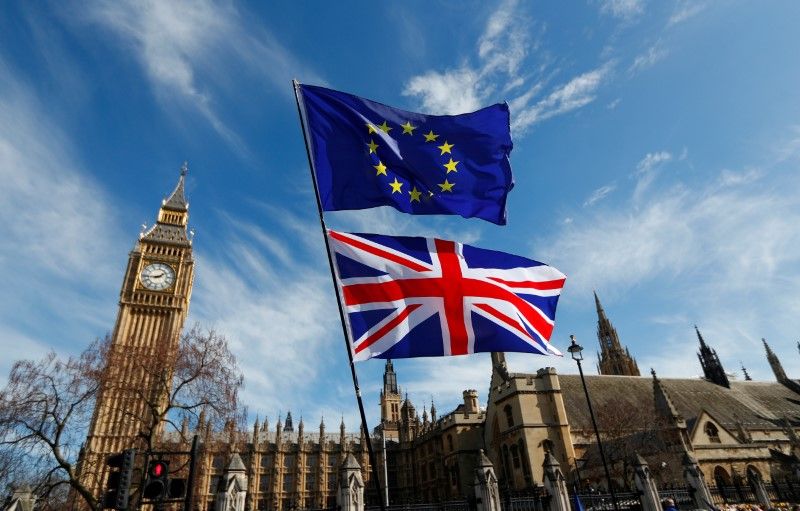
By William Schomberg
LONDON (Reuters) – Ratings agency Standard & Poor’s said Prime Minister Theresa May’s decision to call a snap national election on June 8 could increase the chances of a good Brexit deal for Britain, but there were risks of a surprise outcome from the June 8 poll.
S&P, which has long said Brexit poses a threat to Britain’s economy, said the expected bigger parliamentary majority for May’s Conservative Party after the election might give her more flexibility to strike a “viable” Brexit deal with the EU.
That might reduce the risk of an abrupt “cliff-edge” Brexit with no transitional arrangement for Britain, an outcome that could be most damaging for the economy.
“Nevertheless, there are risks surrounding both the election — for example, if voters vote on the basis of Brexit as opposed to on traditional party lines — and the Brexit negotiations,” it said in a statement that affirmed the possibility of a further downgrade of Britain’s sovereign debt rating.
May called the election last week, saying she wanted to go into the two-year Brexit negotiations with the EU’s other 27 member countries in a position of strength.
S&P also said Britain’s decision to leave the European Union had created “a heightened risk” around the country’s large borrowing needs and could put strains on the historic make-up of the United Kingdom.
The UK’s gross external financing needs were the highest among all 131 sovereigns rated by the agency, it said.
“Despite our forecast for a slight narrowing of the current account deficit, we still view the UK’s high external deficits as a vulnerability, and we view an EU departure as a risk to financing sources,” the ratings agency said.
“We further think Brexit will continue to create challenging political and constitutional issues around the unity of the United Kingdom, especially if it results in a second referendum on Scottish independence or increases tensions around Northern Ireland.”
S&P cut Britain’s top-notch AAA credit rating by two places to AA shortly after last June’s vote to leave the EU, saying the country’s capacity for effective and stable policymaking had diminished.
Britain’s economy withstood the initial shock of the referendum decision and, among the Group of Seven rich nations, its pace of growth was second only to Germany’s in 2016.
But there have been signs of a slowdown in early 2017. Growth in the first quarter was less than half the pace of the fourth quarter of last year, data showed on Friday.
S&P said it expected growth to average 1.4 percent a year between 2017 and 2020, down from its forecast before the referendum of 2.1 percent for the 2017-2019 period.
The latest forecasts would be revised if it becomes clear that Britain is heading for an abrupt departure from the EU with no transition arrangement, it said, stressing the uncertain outcome of the negotiations.
“While it is possible that the UK could arrive at a mutually beneficial deal with the EU, it may also be the case that many of the remaining EU members will have no incentive to accommodate the UK, and that they will focus more on deterring other potential departures and containing the rise of their own national eurosceptic movements,” S&P said.
(Writing by William Schomberg; Editing by Catherine Evans)





























